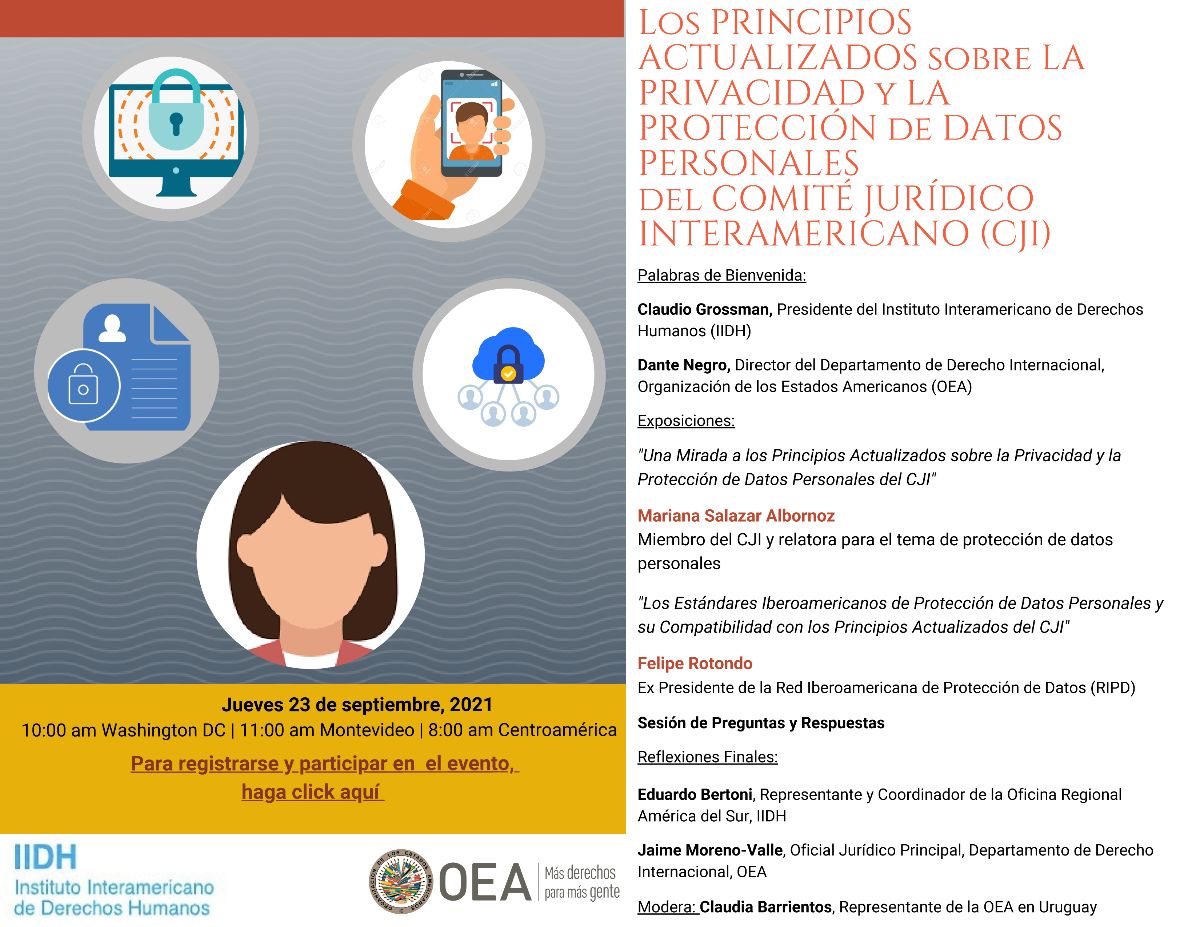Views
Nothing Found
Sorry, no posts matched your criteria
News
OAS: Today webinar on updated principles on privacy and the protection of personal data – in Spanish (10 am Washington DC time)

The Organization of American States (OAS) is hosting a webinar entitled updated principles on privacy and the protection of personal data of the Inter-American Juridical Committee today at 10 am (DC time), 4 pm CEST time – in Spanish. More information is available here.
CJEU on the (in)admissibility of the request for a preliminary ruling on the Succession Regulation lodged by a notary in the case OKR, C-387/20
In its judgments delivered in the cases WB, C-658/17 and E.E., C-80/19, the Court of Justice already addressed the question whether a notary dealing with succession-related matters is a “court” for the purposes of the Succession Regulation. In these cases, however, the requests for a preliminary ruling originated from the proceedings pending before the national courts.
By contrast, in the case OKR, C-387/20, the request for a preliminary ruling is brought before the Court by a Polish notary [or, to be more specific, by a notarial clerk/assistant (fr. “clerc de notarie”, pl. “zastepca notarialny”), yet this nuance does not seem to affect the outcome of the case at hand].
Costa Rica signed the HCCH 2019 Judgments Convention (and filed a declaration)
Last week Costa Rica signed the HCCH Convention of 2 July 2019 on the Recognition and Enforcement of Foreign Judgments in Civil or Commercial Matters (2019 HCCH Judgments Convention). The HCCH news item is available here.
It should be noted that in order to consent to be bound by the treaty, Costa Rica would need to deposit an instrument of ratification, acceptance or approval. In the meantime, a signatory State has the obligation not to defeat the object and purpose of a treaty prior to its entry into force (article 18 of the UN Vienna Convention on the Law of Treaties).
Costa Rica made the following declaration: “in accordance with article 14, paragraph 3, of the Convention, the Republic of Costa Rica declares that it shall not apply Article 14, paragraph 1, of the Convention.”
Article 14(1) of the HCCH 2019 Judgments Convention states the following: “No security, bond or deposit, however described, shall be required from a party who in one Contracting State applies for enforcement of a judgment given by a court of another Contracting State on the sole ground that such party is a foreign national or is not domiciled or resident in the State in which enforcement is sought.” Article 14(3) of the HCCH 2019 Judgments Convention allows States to file a declaration stating that they will not apply Article 14(1).
In this regard, it should be noted that many HCCH Conventions contain a similar provision. This is particularly the case of the HCCH 1980 Access to Justice Convention, whose objective is precisely, as its name suggests, to promote access to justice by ensuring that “the mere status as an alien or the absence of residence or domicile in a State are not grounds for discrimination with regard to access to justice in that State” (HCCH outline of this Convention).
The HCCH 1980 Access to Justice Convention strikes the right balance by eliminating such a requirement and at the same time allowing the enforceability of orders for costs (Chapter II, arts 14-17). The latter is somewhat similar to Article 14(2) of the HCCH 2019 Judgments Convention and undoubtedly was a source of inspiration during the negotiations.
The interesting fact is that Costa Rica is a party to the HCCH 1980 Access to Justice Convention. Thus, Costa Rica is not allowed to impose any security, bond or deposit on the basis of a person being a foreign national or of not having his or her domicile or residence in Costa Rica if the conditions of Article 14 of the HCCH 1980 Access to Justice Convention are met, at least in its relations with the Contracting States to the said Convention.
Nevertheless, the declaration of Costa Rica underlines the fact that some States continue to impose such a requirement (although admittedly this requirement is fading away in some regions of the world). And thus the promotion of the HCCH 1980 Access to Justice Convention and all other HCCH Conventions that promote the principle of non-discrimination continue to be all the more relevant.
***
The HCCH 2019 Judgments Convention is not yet in force. In accordance with its article 28: “This Convention shall enter into force on the first day of the month following the expiration of the period during which a notification may be made in accordance with Article 29(2) with respect to the second State that has deposited its instrument of ratification, acceptance, approval or accession referred to in Article 24.”
There are currently four signatory States: Costa Rica, Israel, Uruguay and Ukraine. The act of signing a treaty does not count towards the timeline specified in article 28 of the HCCH 2019 Judgments Convention as it is not an instrument of ratification, acceptance, approval or accession.


